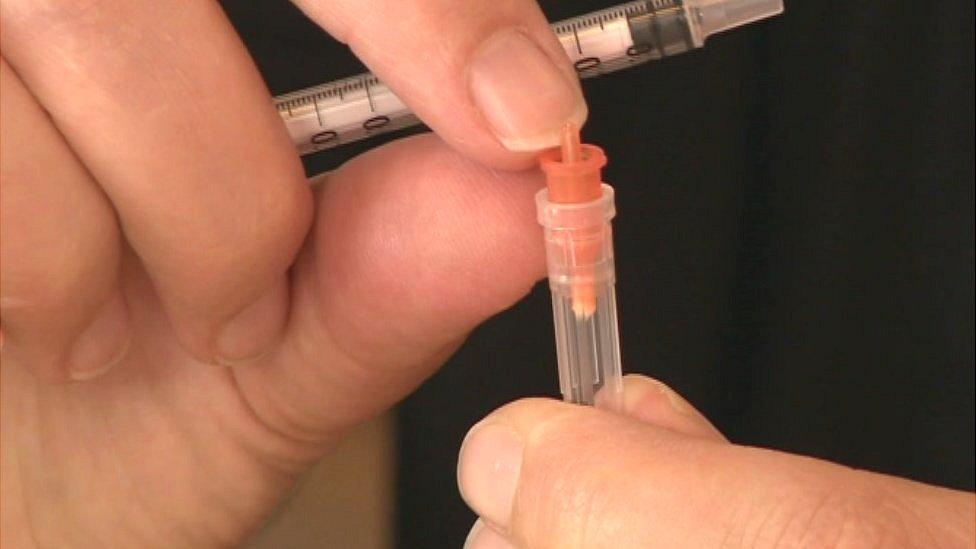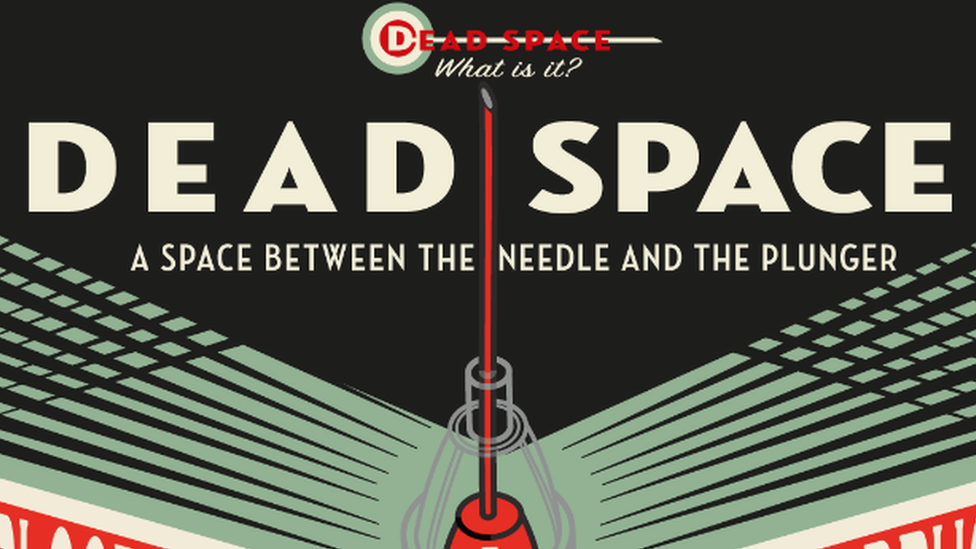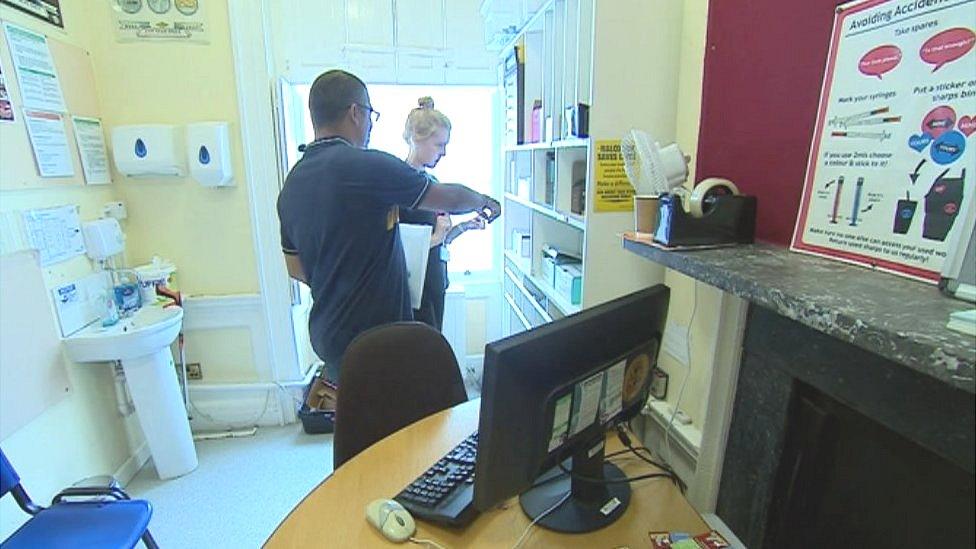'Safer' needles for drug users gets global interest
- Published

The needles are designed with a small plug so more blood is expelled from the syringe void after the drug is injected
A project to get drug users to switch to a new design of needle that reduces infection risk has proved so successful it has attracted global interest.
The Bristol Drugs Project used feedback from those using drugs who had shared their worries about changing needles, to create the educational campaign.
The material is now used across the UK, Thailand, Germany, France and Russia.
The needles have been used in Bristol for three years after research was completed, external into their effectiveness.
The promotional material is also backed by Public Health England, and in April, was shared to other needle exchanges abroad.

The promotional material was all based on drug users' feedback on the benefits of "dead space" needles
The "dead space" needles being used in Bristol are designed with a small plug so that more blood is expelled from the void between the needle and plunger.
This in turn reduces the chances of a blood-borne virus like HIV or hepatitis C being passed on if the needle is shared.
A Bristol service user, who did not want to be named, said he had been fighting his addiction for 25 years.
"If someone says to me 'you've just got to stop' it's just not going to happen," he said.
"I've tried every which way to try to stop. Now I'm at the point where I just need to reduce the risks for myself."
He added the campaign had changed his behaviour, and he would now only uses needles once before disposing of them.
Deborah Hussey from the Bristol Drugs Project said: "What has been lovely is the knowledge of our service users around why and how they really understand what low dead space is and what the benefits are to them."

The Bristol Drugs Project says all its users have now switched to the new needle design
- Published31 July 2019

- Published5 February 2019

- Published28 March 2019
